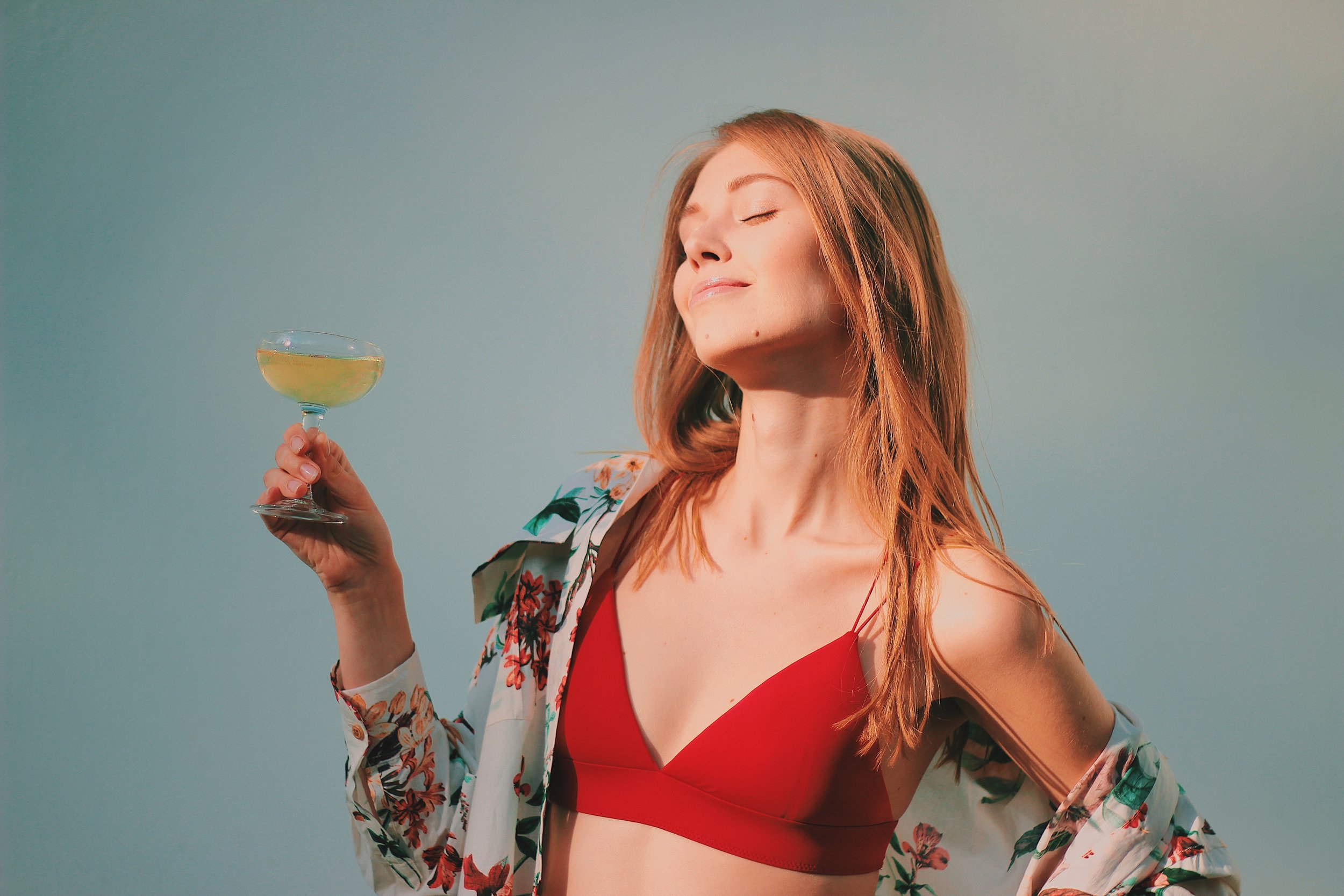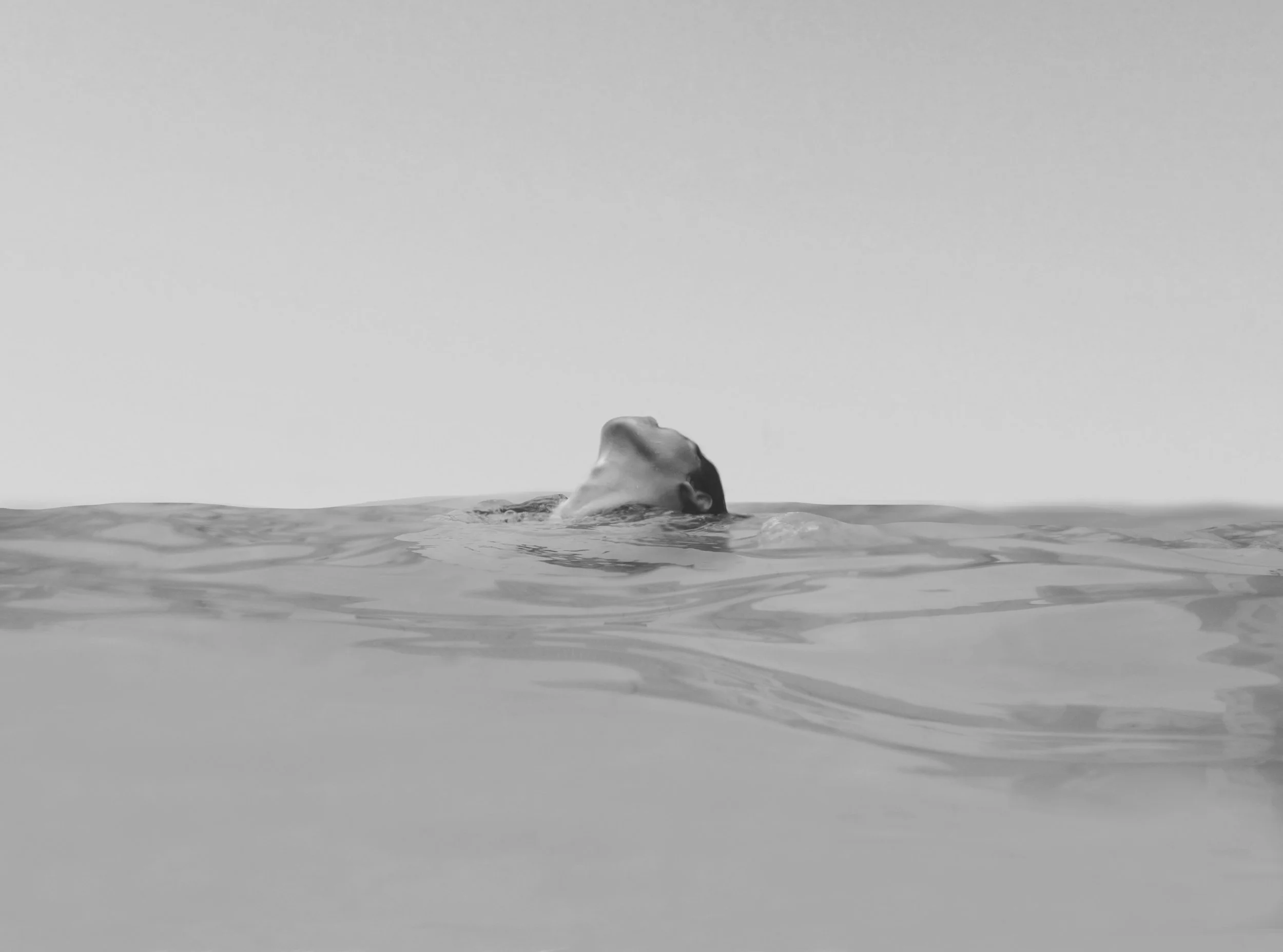This is not a story about how I fell down some stairs after a few wines and sprained my ankle, or the night I smashed my wrist against a toilet doorhandle after I’d stumbled in to vomit (I had a cast on my arm for a week). That’s what you were expecting, right? Some outrageous tale where my lifestyle became so shamefully destructive that I had no choice but to transform? The truth is, there wasn’t any catastrophic event that sparked my sobriety 18 months ago. Both of the aforementioned vodka-soaked memories definitely happened, but on the scale of drinking testimonies in this country, I doubt my experiences would even make a blip. I wasn’t an alcoholic or even a problem drinker, and my drinking was nowhere near destructive levels. No one around me was being hurt by my drinking, and my liver was perfectly healthy. But my emotional and social dependence on alcohol was putting me out of alignment with my desire to live a meaningful and purposeful life, and cutting the cord has been a necessary step for my own growth.
By the way, I’m not going to jump on my high horse and declare that everyone should follow my lead. My decision to break up with alcohol was a very personal one, and frankly, the sanctimonious tone of so many sober people is one reason I’d been put off by the alcohol-free movement. So if you enjoy alcohol and don’t feel it harms your wellbeing, I’m not suggesting you must stop – I don’t know what’s right for you any more than you know what’s right for me. But if, like me, your relationship with booze has started to sour in recent times, yet you’re continuing to drink out of some sense of social obligation or fear of being alone with your thoughts, hopefully I can show you that the dry life is actually not that bad – in fact, it’s actually pretty great.
(Photo by Giovanna Gomes on Unsplash)
Here’s what happened. I’ve always been a lightweight, but over a period of about 12 months after my 38th birthday it seemed like the numbness in my legs was hitting within a few mouthfuls, and I was feeling woozy very quickly. The hangovers were suddenly lasting two or three days, and I found I couldn’t have more than two glasses of wine on any occasion because I’d vomit the same night. I’m sure getting older played a part in my diminishing tolerance for alcohol, but it was clear the intensity of my body’s negative response to alcohol was escalating rapidly. On my last drinking session, a glorious sunny Sunday afternoon with friends in December 2017, I had about four wines over a five-hour period with food and ample water. Then I came home and vomited four times. Not for the first time, I declared: ‘I’m never drinking again!’ – but this time, I actually meant it.
I knew I needed to break up with booze, but I had ignored that message as long as I could – until my body made it impossible for me to ignore. I really didn’t want any more reasons to stand out or attract judgement (always disguised as humour! But really not funny at all!) in social or work settings. My reluctance to break up with booze was tied up with my fears about the consequences of being different (isolation, rejection, to name a few). And beyond all that, I didn’t want to stop drinking because it meant I’d have nowhere to escape to.
(Photo by Nate Nessman on Unsplash)
That’s what it really came down to: pure escapism. In this country, alcohol is the altar we worship at. If you have a bad day at work, you can guarantee someone will tell you to go home and have a drink. If you miss out on an opportunity, someone well-intentioned will suggest going to the pub. If your kids are being jerks there are countless Facebook memes and fridge magnets recommending ‘mommy juice’. And when, on a very deep level, you’re simply not happy with your life or with yourself, you’re going to want to run far, far away from that shitty feeling. We all know alcohol won’t fix the problem, but it allows us to check out of the discomfort while we gather strength to continue the masquerade of pretending everything-is-fine-thanks-nothing-to-see-here-I’m-coping-brilliantly-like-everyone-else-out-here! If I were to break up with this socially endorsed liquid pacifier, how in God’s name was I going to cope with the inevitable downswings of being human?
In the end, I simply didn’t have a choice – my body was not accepting alcohol anymore. The most challenging aspect of sobriety has not been worrying about what other people think of me when I go to social events and drink only water, but sitting with all those uncomfortable feelings I’d spent more than two decades trying to avoid. When I have a fight with my partner, there is no more reaching for the gin bottle. There is only me, allowing myself to be mad/sad/frustrated and navigating my way through that cesspit (FYI journalling has helped). When I’m struggling to generate work (#selfemployedlyfe), there is no more cracking open a bottle of cabernet sauvignon at the end of the day. There is only me, walking along the beach, breathing into the discomfort and reminding myself that I’m not defined by my professional progress (or lack thereof), and that this is just a moment, not the rest of my life. When I am nervous and jittery at social or networking events, there is no keeping my hands busy with a cool glass of prosecco. There is only me, owning my introversion and doing the best I can to engage with other humans (even though I feel like a potato). These might not seem like victories to you, but they are me not escaping… and that is enough.
(Photo by Thao Le Hoang on Unsplash)
In the spirit of honesty, there have been a handful of occasions since then when I’ve imbibed – a sangria while visiting Spain, a rum with some friends in London, half a Corona on New Year’s Eve – but almost immediately I’ve been reminded of why I no longer enjoy drinking. And that is how I switched from ‘sober curious’ to full-time sober.
I would not say being alcohol-free has been an easy transition but it has been worth it. My intuition is sharper, my baseline level of self-compassion has improved and my body *feels* more in balance. I have a level of clarity around what I’m doing and who I am that I didn’t have before. It’s easier to discern what is right for me, because I’m not actively trying to escape what is not. I’m not saying everyone is guaranteed these benefits but for me it’s been a total game-changer – which is definitely worth raising a glass of orange juice to.




